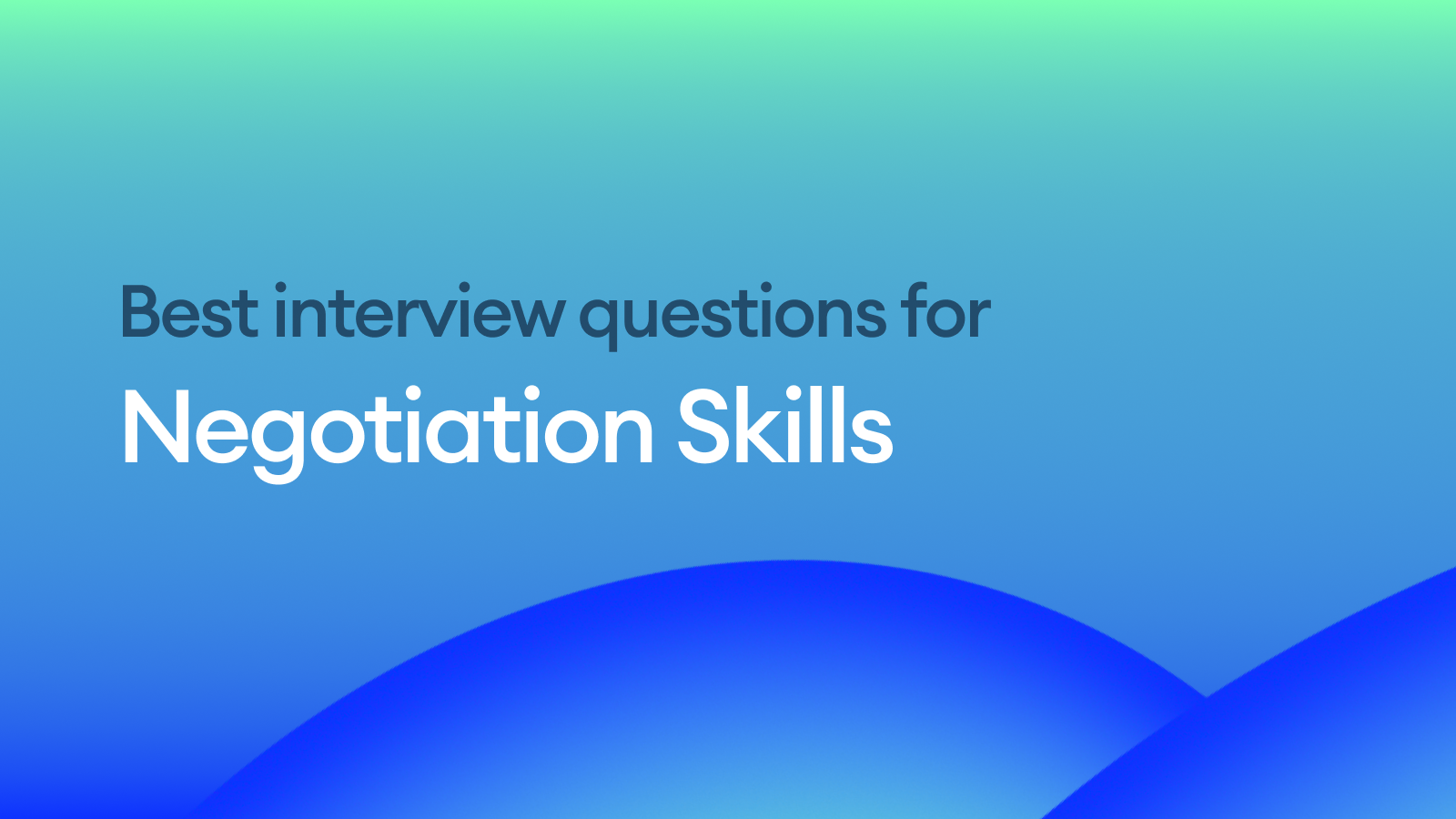Negotiation skills are crucial as they impact a wide range of workplace interactions, from sales discussions to conflict resolution and strategic partnerships. Assessing a candidate's ability to negotiate effectively can provide insights into their problem-solving abilities, emotional intelligence, and overall suitability for roles that require collaboration and decision-making. This article explores the best interview questions to evaluate negotiation skills, what to look for in responses, and tips for effectively assessing these abilities during the hiring process.
Negotiation Skills Interview Questions
- How do you prepare for a negotiation to ensure a favorable result?
- Tell me about a time when you had to negotiate with someone who had a different perspective or interests.
- How do you handle conflicts that arise during negotiations?
- Describe a negotiation that did not go as planned. What did you learn from it?
- How do you balance assertiveness and empathy in a negotiation?
- Can you describe a situation where you successfully negotiated?
- What strategies do you use to understand the other party’s needs and motivations?
- Can you provide an example of how you’ve used data or research to support your negotiation position?
- How do you determine when to walk away from a negotiation?
- Describe a time when you had to negotiate under pressure. How did you manage it?
What to Look for in Answers
- Clear Examples: Candidates should provide specific instances that demonstrate their negotiation experiences, showcasing their ability to achieve desired outcomes.
- Preparation and Strategy: Look for evidence that the candidate plans and strategizes before entering negotiations, indicating foresight and organization.
- Adaptability and Problem-Solving: Responses should highlight the ability to adapt to different situations and overcome obstacles during negotiations.
- Emotional Intelligence: Candidates should display awareness of their own and others' emotions, showing empathy and effective interpersonal skills.
- Outcome-Oriented: Assess whether the candidate focuses on achieving mutually beneficial results rather than just winning.
- Learning and Growth: Look for reflections on past negotiations, especially failures, indicating a willingness to learn and improve.
- Communication Skills: Effective negotiators articulate their points clearly and listen actively to understand the other party’s perspective.
- Ethical Considerations: Ensure that the candidate maintains integrity and ethical standards during negotiations.
- Decision-Making Ability: The ability to make informed decisions, including knowing when to compromise or walk away, is crucial.
- Use of Tools and Data: Candidates who leverage data or research to support their negotiation stance demonstrate thoroughness and analytical skills.
Tips for Evaluating Negotiation Skills During the Hiring Process
-
Assess Communication Abilities
Pay attention to how candidates articulate their thoughts and actively listen during the interview, as effective communication is key to successful negotiations. -
Evaluate Problem-Solving Techniques
Present hypothetical negotiation scenarios to understand the candidate’s approach to resolving conflicts and finding mutually beneficial solutions. -
Observe Emotional Intelligence
Notice the candidate’s ability to manage emotions, show empathy, and build rapport, which are essential for creating positive negotiation environments. -
Check for Strategic Thinking
Determine if the candidate can plan and execute negotiation strategies, considering both short-term gains and long-term relationships. -
Test for Resilience
Assess how candidates handle setbacks or difficult negotiations, as resilience is important for maintaining effectiveness under pressure. -
Incorporate Role-Playing Exercises
Engage candidates in role-playing scenarios to observe their negotiation techniques and adaptability in real-time. -
Seek References
Contact previous employers or colleagues to gain additional perspectives on the candidate’s negotiation abilities and effectiveness in professional settings. -
Analyze Decision-Making Skills
Evaluate how candidates approach decision-making processes in negotiations, including their ability to weigh options and make informed choices. -
Consider Cultural Fit
Ensure that the candidate’s negotiation style aligns with your organization’s values and culture to promote harmonious and productive interactions.
Summary
Negotiation skills are a vital asset in the workplace, influencing everything from individual performance to organizational success. By asking targeted interview questions, understanding what to look for in candidate responses, and employing strategic evaluation techniques, employers can effectively assess a candidate’s ability to negotiate. This comprehensive approach not only identifies individuals who can secure favorable outcomes but also those who contribute to a positive and collaborative work environment. Investing time in evaluating negotiation skills during the hiring process ensures that your team is equipped with professionals capable of navigating complex discussions and driving your organization forward.


